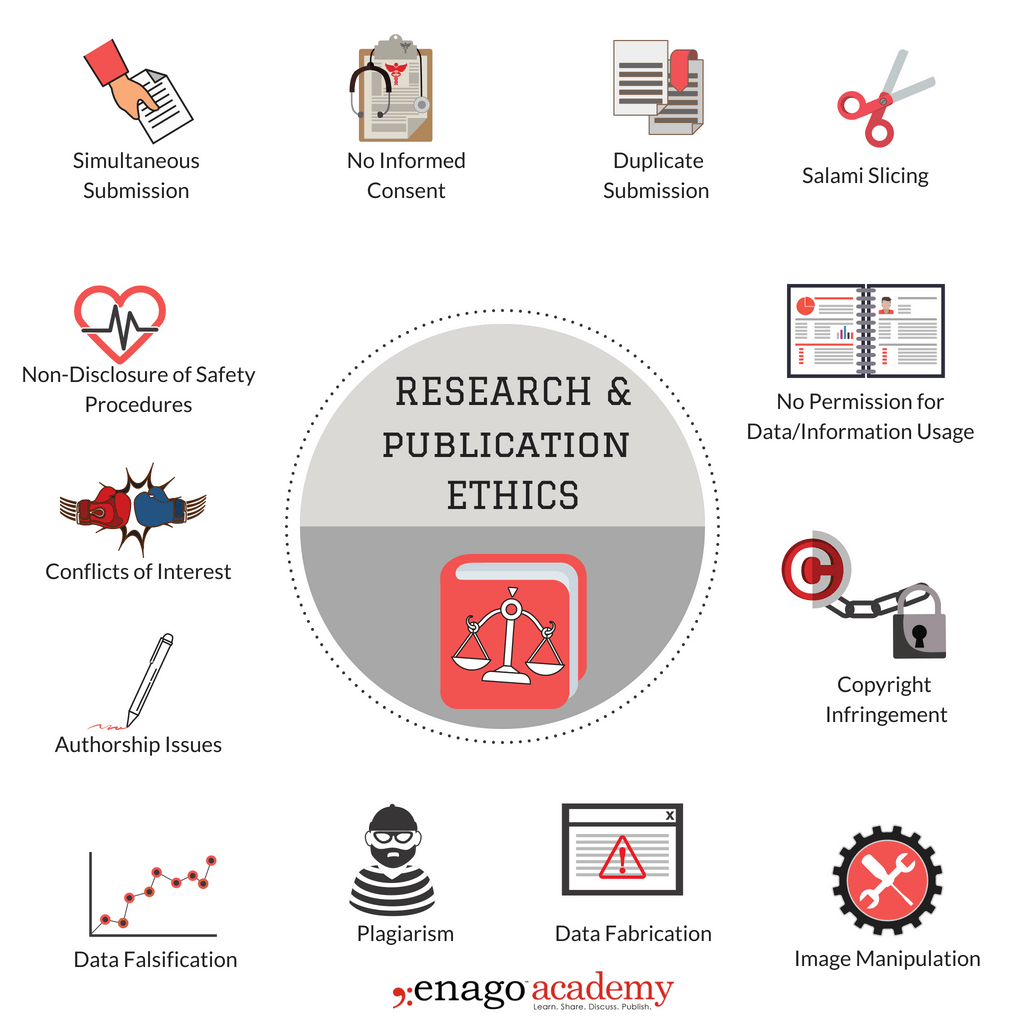Research Ethics & Misconduct: What Researchers Need to Know

Ethics are the moral principles that a person must follow, irrespective of the place or time. Behaving ethically involves doing the right thing at the right time. Research ethics focus on the moral principles that researchers must follow in their respective fields of research.
Why Do Ethics Matter?
Ethical decision making in academic research focuses on providing maximum benefits to the participants. Following ethical principles in research is indeed crucial for maintaining the integrity of the study.
- Honesty: Ensure honesty in all forms of scientific communication with colleagues, sponsors or the general public
- Objectivity: Avoid bias in all aspects of research
- Integrity: Maintain consistency of thought and action
- Carefulness: Avoid errors or negligence at all times
- Openness: Share information about your research and be open to criticism and new ideas
- Transparency: Disclose all the necessary information needed to evaluate your research
- Accountability: Be responsible for all concerns related to your research
- Intellectual Property: Avoid plagiarism, give proper credit to all contribution in your research and honor all forms of intellectual property
- Confidentiality: Protect and safeguard all confidential information recorded in your research
- Responsible Publication: Publish for the sole reason to advance the knowledge in your field
- Responsible Mentoring: Help and mentor other researchers and promote their welfare
- Respect for Colleagues: Respect and treat all your colleagues fairly
- Social Responsibility: Aim to promote social good through your research
- Non-Discrimination: Avoid discrimination in all forms against colleagues
- Competence: Improve your own personal competence and also promote the competence of science as a whole
- Legality: Obey all relevant laws and policies
- Animal Care: Respect and care for all animal species
- Human Subjects Protection: Respect human dignity and take special precautions wherever needed.
Ethical Violations in Research
Research misconduct can have dire consequences. For instance, surgeon Paolo Macchiarini conducted experiments on patients without sound preclinical data. He worked on artificial transplantation of trachea within several patients, which turned out to be pathbreaking in medical history. However, it was all based on lies and fabricated data. Most of the patients who took part in his trial (seven of nine) died. He altered his published results to make it look as if his trachea transplant work was more successful than it really was. This was a severe consequence of the breach of research ethics.
What is the Nuremberg Code?
One of the more famous ethical guidelines followed in medical research is the Nuremberg Code. Using the Nuremberg Code shows a commitment to respect research participants. The terrible experiments conducted by the Nazis during the Second World War inspired the formulation of the Nuremberg Code. These experiments often resulted in severe injury or death. In addition, none of the participants were allowed to decide upon whether or not they would like to participate. Many experiments were not done with any therapeutic aim in mind. The Nuremberg Code addresses all of these things.
Making Ethical Decisions
There are some core principles that guide ethical decision making. Firstly, you must be committed to ethical principles. This means choosing an ethical behavior even if it delays your work or means not getting published quickly in a prestigious journal.
Next, you must determine the authenticity of the facts. It is important to evaluate the credibility of the information before taking any decisions regarding the research. Create a list of actions you could take and evaluate the consequences of each one. Make a final choice that seeks to minimize harm and build trust. Ethical decision making also affects how you report research data and who can be considered an author.
Ethics governs not just the treatment provided to the research participants but also to the researchers. Any researcher who contributes substantially to a research project or paper needs to get credit. This holds true even if the researcher is a student. This is usually done by naming him/her as an author on the final paper. It is best to have this discussion before writing the research paper. That way, everyone involved can have their say. A person should not be included as an author because of his/her position in the institute. For example, the head of a department should only be included as one of the authors of the paper, if he/she did substantial work for the paper.
Researchers need to ensure that they do not wield undue influence over others. A professor may want to recruit his or her students for a study. In this case, he or she must make it clear that participation is voluntary, not compulsory. Moreover, no student must feel pressured to participate.

Research Participants Must Be Aware
Informed consent is a key principle of research ethics. It is important that the person who is invited to be part of the research understands both the benefits and the risks involved. They must have all the information that could affect their decision to participate. Each potential research participant should know:
- Why the study is being done, how long it will last, and what methods will be used
- Whether they have the right to not participate or to leave the study at any time
- What are the possible risks or benefits involved, if any
- What are the limits of confidentiality (circumstances under which their identity might be revealed)
- Whom they can contact for their queries.
Different Research Ethics for Different Disciplines
There are general codes of ethics for different disciplines. You can use the Declaration of Helsinki for biomedical research. There are even ethics research guidelines for internet researchers and psychologists.
Regardless of the discipline, all ethical research guidelines seek to maximize good and minimize ill effects. Research ethics, therefore, require that all participants provide voluntary informed consent. All research must seek to answer questions that will benefit humanity. The risks must be minimized as far as humanly possible.
Is there anything in this checklist that could help you refine your use of ethics? Can you suggest some more rules for research ethics that need to be followed? Share your thoughts with us in the comments below!










I always get new experiences in improving the quality of my publications